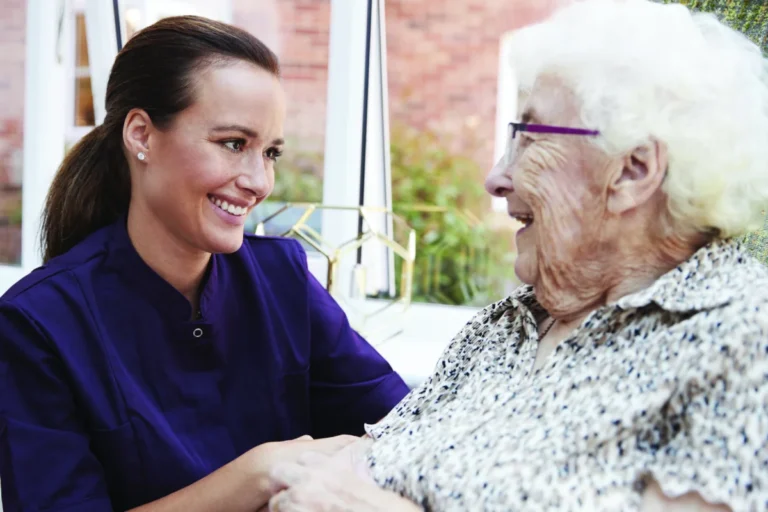As your senior loved one ages, you may begin noticing subtle shifts in their health or behavior, especially when those changes result in some form of cognitive impairment. What happens, though, when the cognitive impairment or confusion appears quite suddenly and without warning? Does this mean your loved one has dementia? Not necessarily. This may be a case of what is known as delirium. While both deal with confusion and cognitive impairment, dementia and delirium are two different things. So, what are delirium symptoms, and how can you differentiate symptoms of delirium from dementia? And what is the difference between dementia, delirium and Alzheimer’s? Read on to find out!
The Delirium Definition: What Exactly Does It Mean?
According to the Mayo Clinic, delirium is a rapid-onset cognitive disturbance that seriously impacts thinking and causes disorientation or reduced awareness of surroundings.
Delirium and dementia are closely related because dementia is one of the top delirium causes, especially in individuals over the age of 65. Additional risk factors and causes include having multiple medical conditions like a severe or chronic illness, poor hearing or vision, an electrolyte disorder or infection, taking multiple prescription medications, or injury, pain or stress.
Symptoms of delirium typically come on rapidly, either within a couple of hours or a few days, and include:
- Exhibiting a reduced ability to stay focused on a conversation or getting stuck on one idea.
- Becoming withdrawn with little or no response or reaction to the surrounding environment.
- Demonstrating cognitive impairment in the form of poor memory or disorientation.
- Having trouble speaking or recalling words; rambling; having trouble with reading or writing.
- Experiencing restlessness, disturbed sleep habits, or a reversal of the sleep and wake cycles.
- Displaying changes in behavior such as combativeness; anxiety, fear or paranoia; apathy or, conversely, an extreme sense of elation or euphoria; depression; and other rapid shifts in mood or personality.
Since symptoms are quite similar to those experienced by individuals with dementia, you might be wondering, can delirium be confused with dementia? And, if so, how can you differentiate symptoms of delirium from dementia?
The Differences Between Delirium and Dementia
Delirium, or a sudden onset of confusion or cognitive impairment, frequently occurs in individuals with dementia, but experiencing delirium is not the same thing as having dementia. Dementia can be defined as a more progressive decline in cognitive abilities due to gradual dysfunction or a loss of brain cells, most commonly caused by Alzheimer’s disease. So, what are three differences between dementia and delirium?
- Onset: While the onset of delirium is rapid (a few hours to a few days), the onset of dementia is more subtle. The symptoms appear as relatively minor in the beginning, but gradually worsen over time.
- Attention: Individuals with delirium will have a very difficult time staying focused, as cognitive impairment with delirium is more significant than that of dementia in the beginning stages. Individuals in the early stages of dementia are generally more alert and focused with the occasional lapse in cognitive function.
- Fluctuation: Delirium causes symptoms that fluctuate rapidly and significantly even throughout the span of one day; in contrast, individuals with dementia have a more constant level of thinking and memory skills with a gradual decline as the disease progresses.
Knowing Your Options: Dementia vs Delirium Treatment
What happens if delirium is not treated? Well, that depends on the cause. If it’s caused by an infection or chronic illness, a lack of treatment could be life-threatening. If your loved one is experiencing symptoms of delirium, or you can’t determine whether their confusion is caused by delirium or dementia, you should contact their doctor as soon as possible. It’s important to avoid conducting an assessment for dementia if an individual is experiencing a bout of delirium; instead, wait until symptoms of delirium subside to ensure results are accurate.
And what is the best treatment for delirium? The most successful approaches at reducing the severity of delirium episodes target risk factors – medical conditions, infections, prescription medications – that might trigger an episode and treating them, such as by stopping use of certain medications or treating the infection or illness. Promoting good sleep habits and ensuring the individual remains calm and in control are also helpful tactics. There are treatment options that include medications to help with harmful delusions or hallucinations, or even aggressive or agitated behavior. Speak to your loved one’s doctor today to see if those options are right for them.
Experience Person-Centered Memory Care at Tutera
If you or your senior loved one is experiencing symptoms of delirium or dementia, our team at Tutera Senior Living and Health Care can help. Our comprehensive network of care for seniors includes communities throughout the Midwest and South, with options for independent senior living, assisted living, memory care, rehabilitation and extended stay, respite stays, and home health.
Our memory care communities incorporate Courtyard Memory Care, featuring the specialized THRIVE program, which individualizes each resident’s care to ensure their experience is meaningful and that they can continue to remain as independent as possible while still receiving the one-on-one attention they deserve.
We stand ready to help you or your loved one with your memory care journey. Contact us at 877-988-8372 to receive a personalized consultation or click here to find a community near you. We look forward to meeting you and answering your questions!







